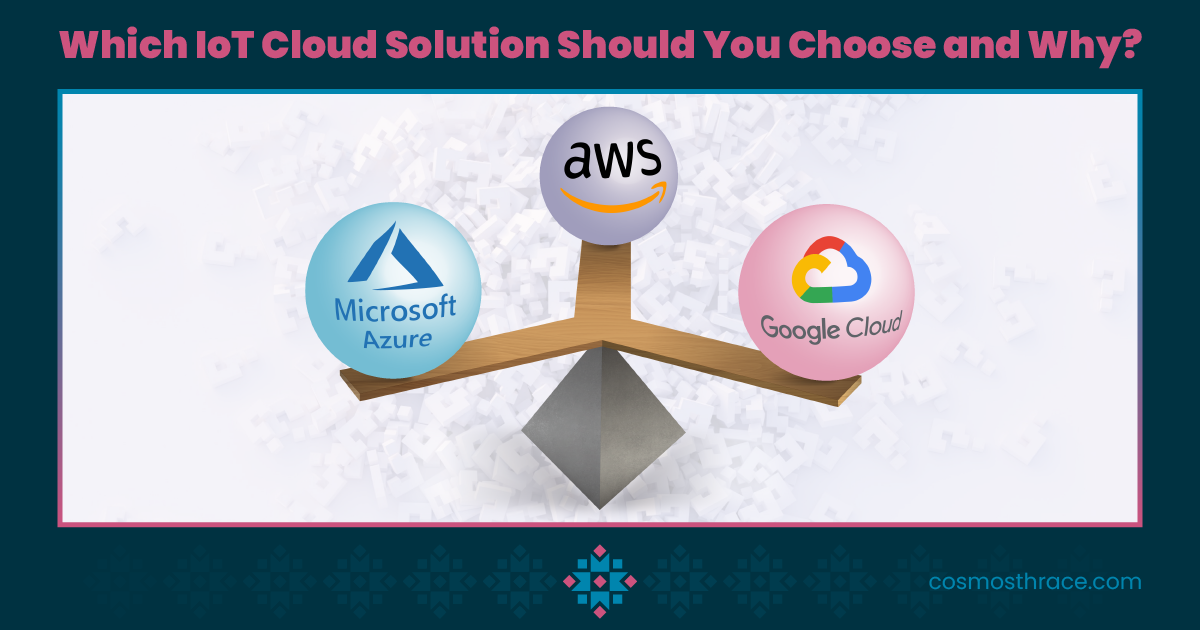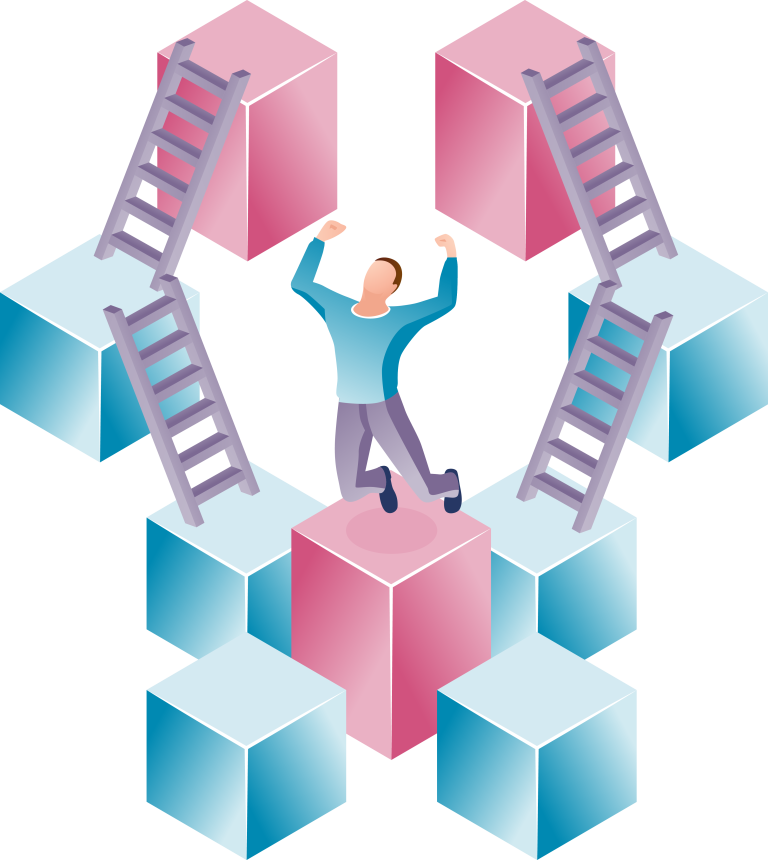Nowadays cloud computing has become a necessity and it is no longer a question of whether businesses need it or not. Businesses should choose a provider, however, there are various options on the market. The top three that stand out as top three cloud providers are Azzure, AWS, and Google Cloud. But even with that in mind the question “Which IoT cloud solution to choose” remains. In this article, we will go through the major factors of each hyper scaler so we can lessen your choice.
Why cloud computing?
But before that let’s answer the question “why cloud computing is so important”. In fact, there are countless reasons why it is vital for businesses, but we may say that the main reason is that it provides a great number of services in the public cloud. The global market value of the cloud computing industry is estimated to be $371 billion, and it is expected to reach $832 billion in 2025. (researchandmarkets.com) And the three main hyper scalers hold more than 80% of the global market share for cloud services for IoT.
According to IoT Analytics, cloud services are classified into three main categories – application management, device management, and data management. Application management aims to help developers manage IoT applications as the name suggests. Device management service enables connected devices to work accurately by running updates and patches for the software and applications. Data management allows seamless connectivity, storing, and analyzing of IoT data.
The top cloud service providers and their best qualities! Which IoT cloud solution to choose?
AWS
The first hyperscaler we will look at in detail is AWS, which is actually the first provider to introduce public cloud services in 2006 and expand it to IoT services later in 2015. As the first cloud provider, AWS remains innovative because of the earlier foundation that it builds on. As you can probably already tell, its biggest strength is public cloud services. Moreover, AWS is the leader in serverless computing because of its services Lambada and Athena. AWS is identified as the most enterprise-ready supplier due to its simplicity in delivering scalability, superior privacy measures, and security to its clients. The number of services that it offers is more than 200 in order to cater to any demand of its millions of users. In terms of IoT-focused services, AWS offers 13 and it has the largest portfolio. IoT Core is a service that ensures secure bi-directional communication for IoT devices; however, the client can decide whether to add a Device Management service to it. Last year, the provider added two new services (AWS IoT TwinMaker and FleetWise) and three other services that are relevant for IoT (RoboRunner, ExpressLink, and AWS Private 5G).
Google Cloud
Google Cloud was released in 2008, two years after AWS, however, it managed to keep its position as one of the strongest challenges on the market. The greatest advantage of this cloud solution is its analytics capabilities. Although Google is the creator of the most-adopted cloud services, Google Cloud is a lot different from AWS and Azure. Its strongest sides are analytics, Big Data, AI, and ML. The most used cloud service is called Cloud IoT Core and it can be combined with other services by Google to come up with an end-to-end solution way easier. Clearly, Google is not focusing on IoT services for now, as they offer only one.
Microsoft Azure
Last but not least, we will talk about Microsoft Azure. It has the strongest enterprise customer base of the three cloud solutions that we discussed in this article. The main reason why most clients prefer Azure over another cloud solution is that it is easy to add it to already existing Microsoft tools and usually companies are already using Microsoft products. That makes the transition to Azure easier than having to learn a completely new interface. Moreover, the company has IoT as a priority, like Google Cloud. Azure has nine IoT services in total, but the most used services are IoT Hub and Azure Edge. Azure allows data transferring without leaving its network, resulting in decreased costs, better security, and lower latency. In contrast to AWS Azure offers industry-specific services (Microsoft Cloud for Manufacturing). Another key differentiator is its ability to integrate with business intelligence tools like Power BI. The integration between Azure and Power B is very simple. On the other hand, integrating Power BI with AWS or Google Cloud might cause some problems. What is more, the UI is very user-friendly, even for people that do not have a programming background. And last, but not least while AWS features strong application management, Azure is more oriented toward device management.
We hope that this article has helped you understand a bit more about cloud computing and the top three providers. If you are still wondering which IoT cloud solution to choose, feel free to contact us. We will be more than happy to help! Also, check our other services!


